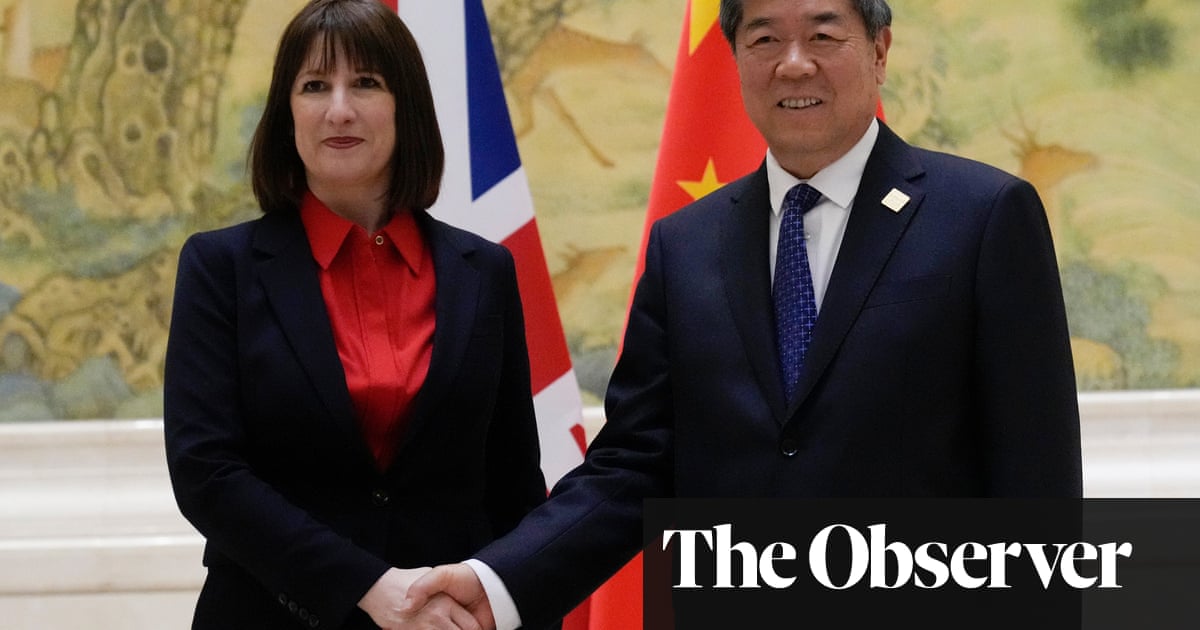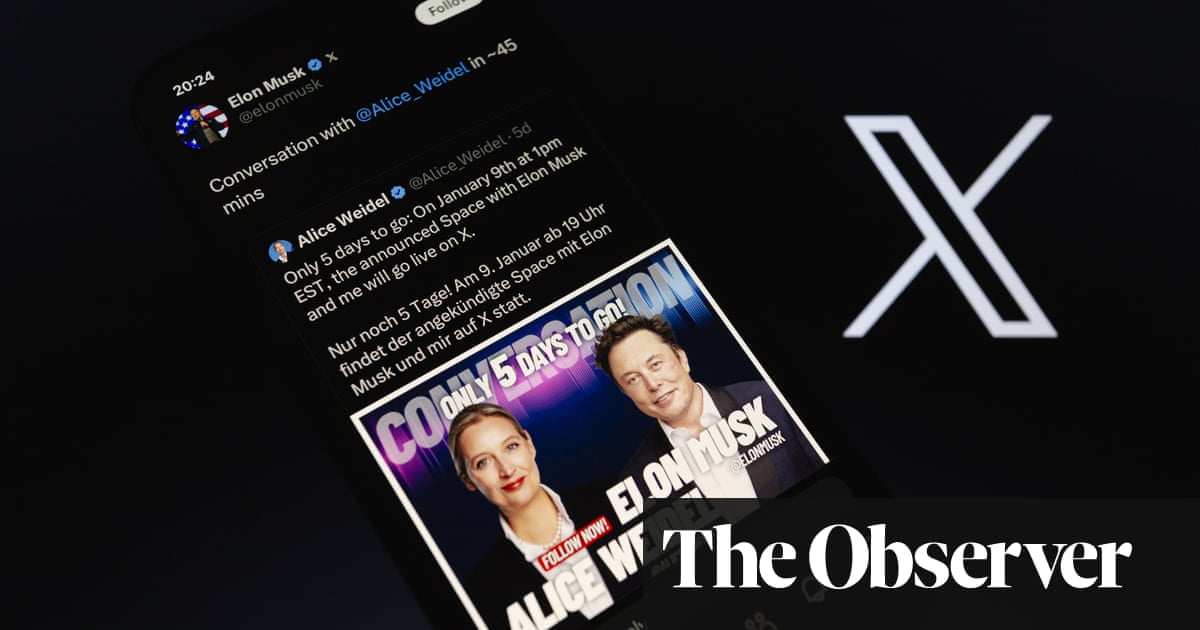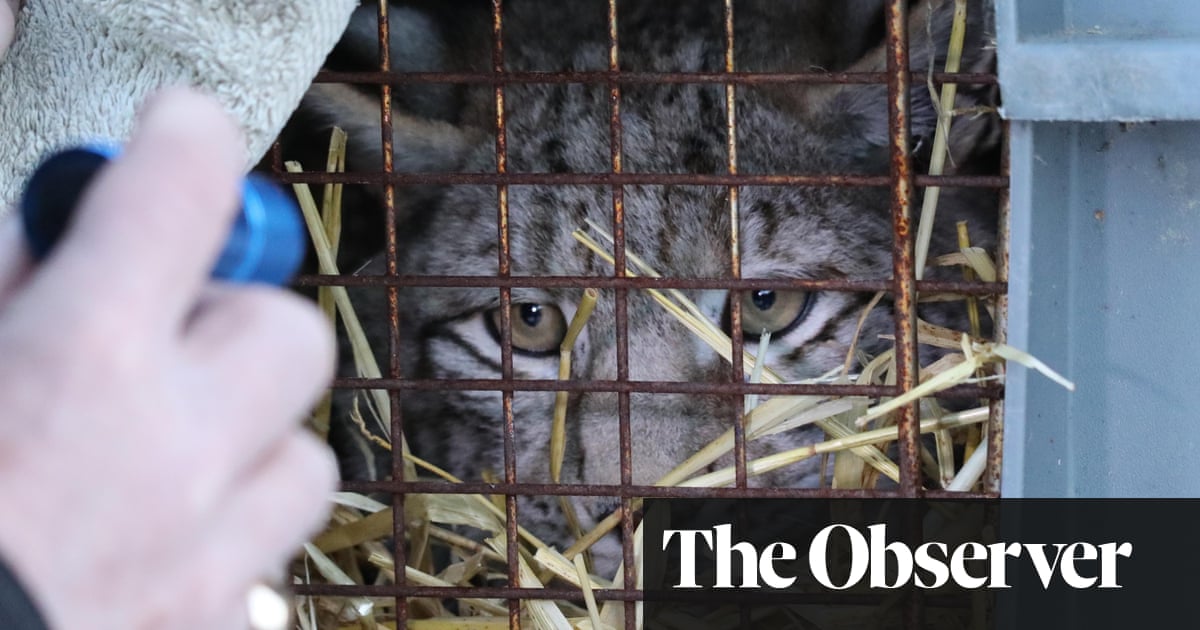As well as an eight-year-old son and a two-year-old daughter, Kaya Scodelario is the dedicated parent of a 10-year-old French bulldog called Arnie. She is hiding from at least one of them during our video call, and says it’s the dog.
She is in the cosy and, crucially, locked spare bedroom of her home in north London, where she sits cross-legged on the floor. The mood is decidedly wholesome, and spiritually a million miles away from the place where audiences first encountered her, on Channel 4’s landmark teen drama Skins. Her character, Effy Stonem – sister to Nicholas Hoult’s Tony – uttered barely a word in series one and two; by series three she was the lead, captivating the boys of Bristol’s Roundview sixth form, not least by challenging them to sniff glue and start fires in return for sex with her. All the while, she was slipping deeper into trauma and depression.
As the writer Emma Garland observed in 2020, Effy’s allure “comes from the conflict between how she really feels (deeply) and how she acts (as though she doesn’t feel a thing) – a facade recognisable to the audience, but very few characters in the show”.
Between that personality, her slept-in smoky eye, and a wardrobe of fishnets and ripped tank tops that the high street duly copied, Effy was nothing short of iconic in 2007. And, more than a decade and a half later, she remains so, with gen Z paying homage to her on TikTok. The character is also, Scodelario explains, absolutely nothing like her. “I really wasn’t the confident cool girl at all,” she says. “I was a typical shy girl that tried to fit in with the cool kids. I would untuck my shirt, but it wasn’t really me.”

A down-to-earth Londoner (she has already called me “darling” within the first minute of the call), Scodelario, 32, grew up in a council flat in Islington with her Brazilian mum, where a revolving cast of waifs and strays from the motherland were always welcome. At school, things were more low-key: she was a timid child who was “scared to put my hand up, scared to make friends, scared to speak”. Cast as Oliver in a school play aged 11, she found something that made her fizz with excitement. “But I wrote it off. I was like: ‘No – I definitely can’t afford to go to drama school.’”
When Scodelario was 14, however, a teacher mentioned an audition for a new teen drama. “A group of us went down just to look, and then a couple of the confident girls went in,” she says. “I was stood watching when the creator, Bryan Elsley, came outside for a cigarette – I think they had had too many kids turn up, so he was going down the line and quite brutally being like: yes, no, yes, no. He saw me across the road and said: ‘Do you want to audition?’” Scodelario got the part, having lied about her age (she said was 15) and then – when she realised that actually they needed a younger actor – calling the producers back in a panic to confess: “No, I lied! I lied! I’m only 14!”
What followed was a “crazy five or six weeks” of filming, though it didn’t feel like it had the potential to become something long-term. “Even the crew were saying they didn’t think it would get picked up. I remember one of the electricians on set going: ‘I’ve worked on really expensive period dramas that didn’t get a second season – there’s no fucking way this will.’ And then, kind of overnight, it happened …”
Skins came out and was, she says, “this cultural moment. People really related to it.” Her life didn’t change much at first. The family were “still broke most of the time”, and filming was confined to her school holidays. Things only really started to shift when she turned 16, and passed up a place at sixth-form college to become the show’s leading lady. By that point, the series was a bona fide hit, and a Bafta winner. During filming for season three, Scodelario says, a car full of university students drove past the set, “pulled down the window, and shouted: ‘Skins is shit!’ And we were all like: ‘Wow, we’ve made it!’”
Scodelario made some of her closest friends on Skins, among them Hoult, Daniel Kaluuya – who is her son’s godfather – and Jack O’Connell, whom she dated at the height of the show’s popularity. “It’s a really loving group,” she says. “And sometimes you don’t get that with actors. You get competition.” Not with the Skins lot. “It’s like, how was that shoot? Are you feeling all right? Are you taking enough time off? And how’s your back?”

She is proud of how authentic the show felt, and says her focus was on bringing Effy’s mental-health storyline to life, which included working with the charity Mind. The show gave her a taste for playing complicated characters, and she admires the way it avoided making moral judgments about them, but allowed the audience to “follow along with the journey more than preaching to them directly … It wasn’t an episode of Byker Grove where someone takes drugs and then they die and everyone’s like: ‘Let’s never do that again.’ I think that’s what the magic of Skins was.”
However, it was also an intense gig, and one that its young stars weren’t always prepared for. Spontaneous nights out in crowded bars were a no, and getting on the tube back in London sometimes made Scodelario feel “stuck and claustrophobic”. On set, too, things could be difficult. In a post on TikTok in 2022, Scodelario compared Skins with the HBO hit Euphoria, and talked about how she had thought that that series was “crazy for 17-year-olds, then [I remembered] what I was doing on TV at 14”. Safeguarding, she added, “really wasn’t a thing back then”.
Nowadays, she says that she advocates for younger actors on sets as often as she can, and is proud of gen Z for stressing the need for intimacy coordinators. “Nothing too awful ever happened [on the set of Skins], thank God, but it could have, and I think that’s what’s scary about it. What’s wonderful now is that every production is aware that a sex scene is essentially a stunt, and it should be choreographed.”
With Skins, she adds, its young cast “were so grateful and happy to be there that we did as we were told most of the time. But this was a show that was created by older grownups, and it would have been cool to have more conversations as actors about what we were doing.”
Ultimately, she concludes that the group “were treated like teenagers that were there to make a teenage show. It was nice that we felt free, and didn’t understand the politics of the business – we weren’t worrying about whose face was going to be on the poster, or who was earning more than who. But at the same time, it’s important to treat actors like actors.”
In 2013, three years after Skins’ initial run ended, she appeared in a spin-off “conclusion” miniseries, Skins: Fire, following Effy’s life working for a City hedge fund. “I felt much more confident in saying what I felt during that series,” she says. “When the first draft came through, there were a lot of sex scenes in it, and I could tell it was because I turned 18, and that meant that they could show more. And I went back and said: ‘No, there’s no need to do that.’” She was 19 by that stage, had been on other sets, and felt “strong enough” to make her voice heard.

In an Instagram comment last year, Scodelario thanked Jennette McCurdy, the Nickelodeon star whose book I’m Glad My Mom Died detailed the mistreatment she had endured from both her family and the TV industry. In particular, Scodelario said that the book, along with therapy, had made her realise she had had “an abusive mother and been screwed by the industry”. She had previously described her mother as “very strict”. “She raised me alone,” she told the Mirror, “and she suffered depression most of her life. It can be very dark, very difficult, especially as a teenager. It put a lot of pressure on our relationship.”
She is hesitant to say more now, although she promises: “There will be a day where I really can get into it. What I love about Jennette’s book is that she clearly took the time to figure out her feelings before speaking publicly. I’m not quite ready to tell my story on my terms. I’m still focusing on being a mum, and wanting my work to be what speaks for me.”
There certainly is a lot of it. There was a brief wobble in confidence when Skins was coming to an end (at an audition for Emma at the BBC alongside “posh, gorgeous” girls, her anxiety spiked and she walked out). However, she has remained busy ever since, in Andrea Arnold’s acclaimed reimagining of Wuthering Heights, big-money US action franchises such as The Maze Runner and Pirates of the Caribbean, Netflix’s ice skating drama Spinning Out, and Guy Ritchie’s latest series The Gentlemen, in which she played a hard-as-nails crime boss.
She says that she faced fewer barriers to entry in the US than the UK, where because of her background a call for a period drama would inevitably be to play a maid. However, she has done “three back-to-back British jobs in the past three years, and I think things have changed for the better. It seems like the industry is finally catching up with the idea that a British actor doesn’t look or sound a certain way.”
While she hasn’t deliberately homed in on action roles, she can see how she has ended up doing so many of them (Terminator’s Sarah Connor was her childhood hero, after all). “In action, it doesn’t matter that I’m the woman, and it doesn’t matter that there’s no love story. I don’t have to snog anyone, I don’t have to bat my eyelids – I get to just do what I need to do to survive in that moment. I fell in love with the power that came from it, of screaming at the top of my lungs, of killing things. There is something really fun about it.”
Fun, but also gruelling, clearly. “I’ve broken so many bones,” she sighs. “I broke a finger during [Alexandre Aja’s claustrophobic 2019 horror] Crawl. I broke a collarbone on Pirates of the Caribbean, but that was because I slipped on the boat. So that wasn’t as cool. But Crawl was the most intense job I’ve ever done – I was covered in dirt and blood and tears all day, every day, for three months. I broke my finger at the start of one day, but I didn’t tell anyone because I didn’t want to go home.”

Last year she was in São Paulo for another high-octane production, the Netflix drama Senna. This revolves around the racing driver Ayrton Senna, although Scodelario’s role as a fictional half-British, half-Brazilian journalist sees her largely trackside rather than putting her pedal to the metal. Scodelario had “always heard stories” about the driver, who died in 1994, when she was two, but only realised how important he was to many Brazilians after a screening of Asif Kapadia’s documentary, also titled Senna. “It was wall-to-wall Brazilians in that cinema. They were crying, and shouting at the screen every time [Senna’s rival, Alain] Prost came up. It was the most emotional, passionate cinema experience of my life.”
Making Senna was the first time Scodelario had spoken Portuguese on screen (she voices her character in both the original version and the English dub). “I’d spent years asking my agents to find me a project in Brazil,” she says. “It was really important to me that I show the world that that is part of my culture. I was described as an English rose once in an article and it really pissed me off, because I’m not.”
So when Senna came along, “I just jumped at it. I said: ‘I’ll do whatever you want. I’ll do it for free. I will Duolingo my Portuguese to get it perfect.’” It was, she says, “the most exhausting job I’ve ever done, even though I didn’t do anything physical, because I was trying to be very aware of the sounds my mouth was making, making sure that my accent was correct. It was scary.”
It was an important moment for the whole family, she says, not least because the children were with her. She has always tried to take them on jobs. “I just never wanted it to be an excuse for producers not to hire me,” she says. “I was 23 when I had my son [with her ex-husband, the actor Benjamin Walker]. A lot of people said: ‘Well, that means you’re not going to work any more.’ I was lucky that I was in a position where I could say: ‘I’m going to fly my son out and I can breastfeed in the makeup chair.’ I bring them along for the ride. And so what if that means I sometimes get a bit of puke on my gown just as I’m going on a red carpet? I can just wet it off …”
“My ex-husband came with me, and he fell in love with it too,” she says. “We’ll always have that connection to Brazil now, and I’m hoping that we can go regularly all together. My son came home and immediately was like: ‘No – I want to go back!’”
If anyone can wangle another gig there, it’s surely her.
Senna is on Netflix from 29 November

.png) 1 month ago
12
1 month ago
12













































